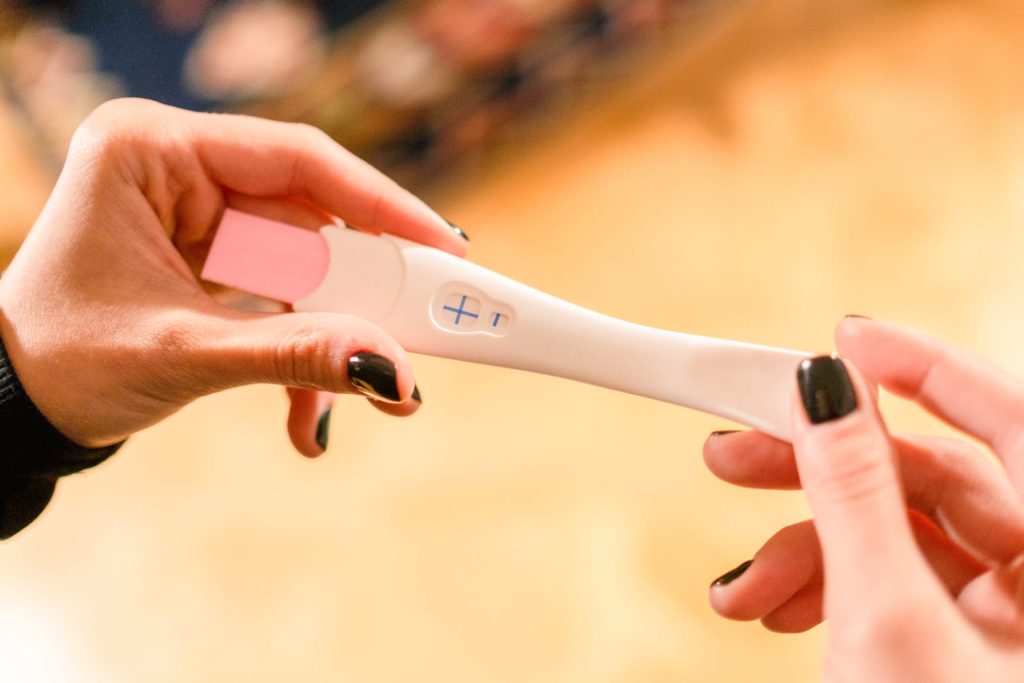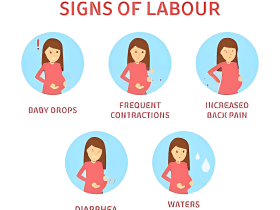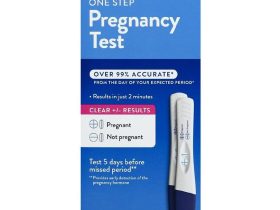Have you ever experienced the surprise of a negative pregnancy test when you were expecting a positive one? Or perhaps the explosion of relief when you were hoping for a negative result? Whatever your scenario, it’s important to understand the reasons behind a negative pregnancy test and what steps should be taken afterwards. This article aims to guide you through this often confusing process.
Pregnancy tests are designed to detect the presence of a hormone called human chorionic gonadotropin (hCG) in your urine. This hormone is produced by the placenta shortly after the embryo attaches to the uterine lining. However, a negative result doesn’t always mean you’re not pregnant. There could be several reasons for this, which we will explore in this article.
So, let’s dive into the world of pregnancy tests, dispel some myths, and arm you with the knowledge you need to make informed decisions about your reproductive health. Remember, every woman’s body is unique, and what may be true for one may not necessarily be true for another. So, buckle up and get ready for an enlightening journey!
Understanding Pregnancy Tests
Let’s start by understanding what a pregnancy test is and how it works. A pregnancy test is a diagnostic tool used to determine if a woman is pregnant or not. It works by detecting the presence of a hormone called human chorionic gonadotropin (hCG) in the woman’s urine or blood. This hormone is produced by the placenta shortly after the fertilized egg attaches to the uterine lining.
Now, what can influence the results of a pregnancy test? There are several factors that can lead to a negative pregnancy test. The most common reason is testing too early. Pregnancy tests vary in their sensitivity—that is, in how soon after conception they can detect the hormone hCG. Some tests are sensitive enough to detect pregnancy as early as a day after a missed period, while others may require you to wait a week or more. Testing too early, before the body has had time to produce enough hCG, can result in a false negative.
Another factor that can influence the results is the time of day the test is taken. The concentration of hCG is usually higher in the morning urine, so taking the test first thing in the morning can increase the chances of detecting a pregnancy. However, if you drink a lot of fluids, especially right before the test, it can dilute your urine and potentially lead to a false negative.
Lastly, certain medical conditions and medications can also affect the accuracy of a pregnancy test. For instance, polycystic ovary syndrome (PCOS), kidney diseases, and certain fertility medications can cause hCG levels to be low or fluctuate, leading to a negative result even if you are pregnant.
Reasons for a Negative Pregnancy Test
There are several reasons why you might receive a negative pregnancy test. This can range from the timing of the test to underlying medical conditions. Let’s take a closer look at these factors.
Timing: One of the most common reasons for a negative pregnancy test is simply taking the test too early. Pregnancy tests detect the presence of a hormone called human chorionic gonadotropin (hCG), which is produced by the body after implantation. If the test is taken before this hormone has had a chance to build up in the body, the result could be negative even if you are pregnant.
Test Sensitivity: Not all pregnancy tests are created equal. Some tests are more sensitive than others and can detect lower levels of hCG. If you are using a less sensitive test, it might not detect pregnancy until a later stage.
Medical Conditions: Certain medical conditions can also affect the results of a pregnancy test. For instance, polycystic ovary syndrome (PCOS) can interfere with ovulation and lead to irregular periods, which might cause a false negative result. Similarly, certain medications can also interfere with test results.
Test Error: Finally, there is always a chance of user error or a faulty test. Always make sure to follow the instructions on the package carefully to ensure accurate results.
| Reason | Explanation |
|---|---|
| Timing | Taking the test too early can lead to a false negative result. |
| Test Sensitivity | Less sensitive tests might not detect pregnancy until a later stage. |
| Medical Conditions | Conditions like PCOS can interfere with ovulation and lead to irregular periods, causing a false negative result. |
| Test Error | User error or a faulty test can also lead to inaccurate results. |
In conclusion, if you receive a negative pregnancy test, don’t panic. Consider the timing of the test, the sensitivity of the test, any underlying medical conditions, and the possibility of test error. If you’re still unsure, consider taking another test or consult with a healthcare professional.
What to Do After a Negative Test
After receiving a negative pregnancy test result, it’s natural to feel a surge of emotions. But remember, it’s not the end of the world. The first step is to stay calm and reassess. There could be a number of reasons for a negative result, including testing too early or not following the test instructions correctly.
Next, you might want to retake the test. It’s recommended to wait a few days or a week before testing again. This gives your body enough time to build up the pregnancy hormone (hCG) that pregnancy tests detect. If the test is still negative and you haven’t gotten your period, it might be time to consult with a healthcare professional.
They can perform a blood test, which is more sensitive than a home pregnancy test. They can also check for any underlying medical conditions that might be affecting your menstrual cycle or fertility. Here’s a simple table to help you understand the next steps:
| Action | When to take it |
|---|---|
| Retake the test | Wait a few days or a week |
| Consult a healthcare professional | If the second test is negative and you haven’t gotten your period |
Remember, it’s important to listen to your body and seek medical advice when necessary. A negative pregnancy test result can be disappointing, but it’s not a definitive answer. There’s always a chance, and there’s always hope.
Frequently Asked Questions
- Why might my pregnancy test be negative?
There could be several reasons for a negative pregnancy test. It could be that the test was taken too early, or there might be a medical condition affecting the results. It’s also possible the test was faulty or expired.
- How do pregnancy tests work?
Pregnancy tests detect the hormone hCG, which is produced in the body after implantation of a fertilized egg. If hCG is detected, the test will show a positive result. However, if it’s too early in the pregnancy, the levels of hCG may not be high enough to be detected.
- What should I do after a negative pregnancy test?
If you’ve taken a pregnancy test and it’s negative, but you still suspect you’re pregnant, it’s recommended to wait a few days and take another test. If the result is still negative and you’re concerned, it’s best to consult with a healthcare professional.


















Leave a Reply
View Comments